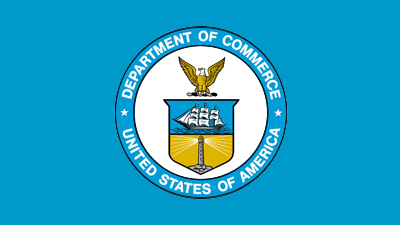
Fact Sheet: U.S. Department of Commerce Support for Minority Business Enterprises
Jun 28, 2024
Fact Sheet: U.S. Department of Commerce Support for Minority Business Enterprises
[email protected]
Fri, 06/28/2024 – 10:39
Investing in communities and workers
FOR IMMEDIATE RELEASE
Friday, June 28, 2024
Office of Public Affairs
Achieving the full potential of the U.S. economy requires that every American entrepreneur can start and grow their business regardless of background. Yet some communities face disproportionate barriers to the resources needed to turn their entrepreneurial dreams into reality. For example, the U.S. Federal Reserve found that more than half of Black-owned businesses were turned down for bank loans, a rate twice as high as white business owners. Black-owned businesses received less than 1 percent of venture dollars and Latino/a-owned businesses received less than 2 percent in 2022, according to CrunchBase. The Department of Commerce is supporting and investing in minority business enterprises (MBEs) to ensure that every entrepreneur can contribute to U.S. economic competitiveness.
The Department of Commerce provides technical assistance to socially and economically disadvantaged entrepreneurs:
The Minority Business Development Agency (MBDA) funds a national network of technical assistance programs, including its Business Center Program, which helped MBEs secure more than $2.8 billion in contracts and capital in 2023.
In 2023, MBDA launched the first of its kind Capital Readiness Program, the largest program for minority and other underserved entrepreneurs in Department of Commerce history. The program invests $125 million in 43 incubators and accelerators to help socially and economically disadvantaged entrepreneurs, including MBEs, develop the necessary networks and experience to pitch investors, raise capital and grow their businesses.
In the last two years, MBDA invested $3.5 million across seven HBCUs through the Minority Colleges & Universities Pilot Program to catalyze entrepreneurship opportunities for undergraduate students at Minority Serving Institutions.
From 2020-2024, the International Trade Administration (ITA) nearly doubled the number of underserved clients, including MBEs, supported by export assistance.
Businesses that export earn higher revenues, create more jobs, and pay better wages. But less than 3% of the U.S.’s 1 million employer MBEs export their goods or services. Businesses in underserved communities have unique comparative advantages and huge potential for growth. But these same businesses often face obstacles: lack of opportunity, inaccurate perception of risk, insufficient financing, and challenges identifying and vetting potential partners. ITA provides critical assistance to underserved businesses, including MBEs, across the nation.
In 2023, the U.S. Patent and Trademark Office (USPTO) law school clinics filed 201 patent applications and 874 trademark applications for pro bono clients, including MBEs.
Entrepreneurs from underserved communities often face barriers to obtaining patents. USPTO donated over $39.3 million in free legal services to inventors and small businesses, including MBEs, from 2015-2022 through the Patent Pro Bono Program to help address these barriers. This program matched 524 applicants to volunteer patent practitioners in 2023. USPTO is also expanding access to free legal and other educational resources including the Law School Clinic Certification Program.
The Department of Commerce directly invests in MBEs and underserved communities including:
The National Institute of Standards and Technology (NIST) is ensuring the historic investments in semiconductor production benefit MBEs.
The CHIPS and Science Act fosters economic opportunity for all suppliers, including minority-owned businesses. The first CHIPS for America funding opportunity requires applicants to document how they will include small businesses, minority-owned businesses, veteran-owned businesses, and women-owned businesses in their pool of suppliers.
The National Telecommunications and Information Administration (NTIA) is connecting communities to the Internet and providing $2.75 billion to promote digital equity and inclusion to ensure that all communities have the technology and capacity to benefit from the digital economy.
NTIA has made available $60 million for states, territories and native entities to develop digital equity plans. NTIA will provide $1.4 billion for capacity grants to fund these state plans and help fund other digital equity programs. NTIA will also provide an additional $1.2 billion in competitive grants for additional digital equity programming.
NTIA provided awards to 43 HBCUs through the Connecting Minority Communities Pilot Program, representing 51% of total funding. This program addresses disparities in campus internet connectivity and equipment access for students and faculty.
As a whole, the Internet for All program will bring affordable, high-speed internet to roughly 8 million unserved locations, including millions of businesses and households in communities of color, rural, and tribal areas.
In 2021, the Economic Development Administration revised its investment priorities to include equity as a priority consideration when making investments.
This prioritization ensures that EDA’s historic new investments, including the Good Jobs Challenge, Build Back Better Regional Challenge, Tech Hubs Program, and Recompete Pilot Program, as well as EDA’s core programs, consider equity when awards are made.
EDA will track progress toward these goals by measuring estimated jobs created and retained for underserved communities and geographies, including communities of color, private investment funds leveraged by underserved communities and geographies, including communities of color, and total sum of funding secured by entrepreneurs in these communities.
In fiscal year 2023, EDA invested approximately $2.5 million in six HBCUs projects to support equitable economic growth and help communities develop regional capacity. For example, a Spelman College award enables targeted assistance to early- and mid-stage Black STEM entrepreneurs from the Atlanta metropolitan area.
In 2024, the Department of Commerce is on track to award 22 percent of contracts to small, disadvantaged businesses, including MBEs, surpassing the Government-wide goal of 15 percent.
President Biden directed agencies to make Federal contracting and procurement opportunities more available, to remove barriers faced by underserved individuals and communities and to increase the share of contracts awarded to Small Disadvantaged Businesses (SDBs), which includes MBEs, to 15% by Fiscal Year (FY) 2025. Commerce has historically done very well in awarding contracts to SDBs, averaging approximately 21% (FY 2019 – FY 2023) of contract dollars obligated to SDBs. Doubling down on engagement and recruitment, Commerce is on track to exceed that average.
Bureaus and Offices
Minority Business Development Agency
Read the full report from the U.S. Department of Commerce: Read More



